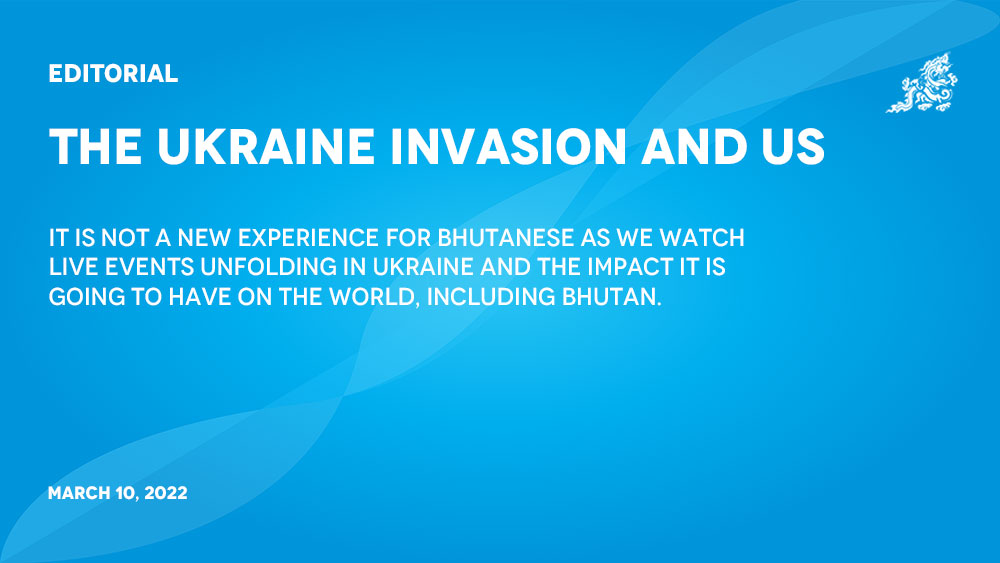It is not a new experience for Bhutanese as we watch live events unfolding in Ukraine and the impact it is going to have on the world, including Bhutan.
The events may be taking place halfway around the world, but the conflict that is now in its second week is going to influence even what we consume at home. The world is a global village and like most countries, Bhutan will not escape the effects of the war. In fact, we are already feeling it.
Not many would have thought that the price of cooking oil in Zhemgang or Thimphu could be determined by what happens in Ukraine. Bhutan imports almost all its cooking oil from India. India in turn imports 90 percent of its sunflower from Ukraine and Russia. The disruption in trade and speculation of shortage is driving prices higher. We should brace for more impact.
Fuel price has soared to new heights and without an end in sight and new developments, it is going to be worse. After the OPEC countries Russia is the largest exporter of oil. OPEC experts are saying that they have no capacity to replace Russia’s 70 million barrels of oil supply a day. The result is an increase in price as supply drops.
As an import driven country, people will now pay more for goods. As a land locked country, we have only one means of transport. Cost of transporting goods is determined by the cost of diesel. This comes at a time when the pandemic has already sent the price of goods and essentials sky high.
Higher fuel prices and its ripple effect will have more impact on the middle and lower-income group, who will have to spend more on transportation and food. According to a United Nations report published recently, food prices have already reached the highest because of the impact of pandemic on supply chains. Fuel price hike will aggravate it.
Important projects like the hydro power projects will see price escalation. This will add on to the cost of delays. We have no control over the fuel price. The uncertainties brought about by conflicts, however, is a good reminder of our priorities, that are in our hands.
We had long recognised improving public transport and switching to clean energy. While efforts have been made to make public transport service cheap and efficient, we can do more. Many office goers, wanting to switch to public transport could not because of route and timing issues. If driving becomes expensive and public transport convenient, many would choose the bus to office.
The plan to switch to electric cars has hit speed bumps both because of the pandemic and our attitude. Many cannot afford electric cars, those who can, cannot look beyond the fuel guzzlers. The current situation teaches us to take up our electric vehicles project with more urgency and sincerity.
It is said that we cannot let a crisis go into waste. We have learnt enough from the pandemic. We should brace for impacts of a war fought on the other side of the world. It is strange that one country can try to invade another in the 21st century. But the lesson is that anything is possible and nobody is spared by the impact.


